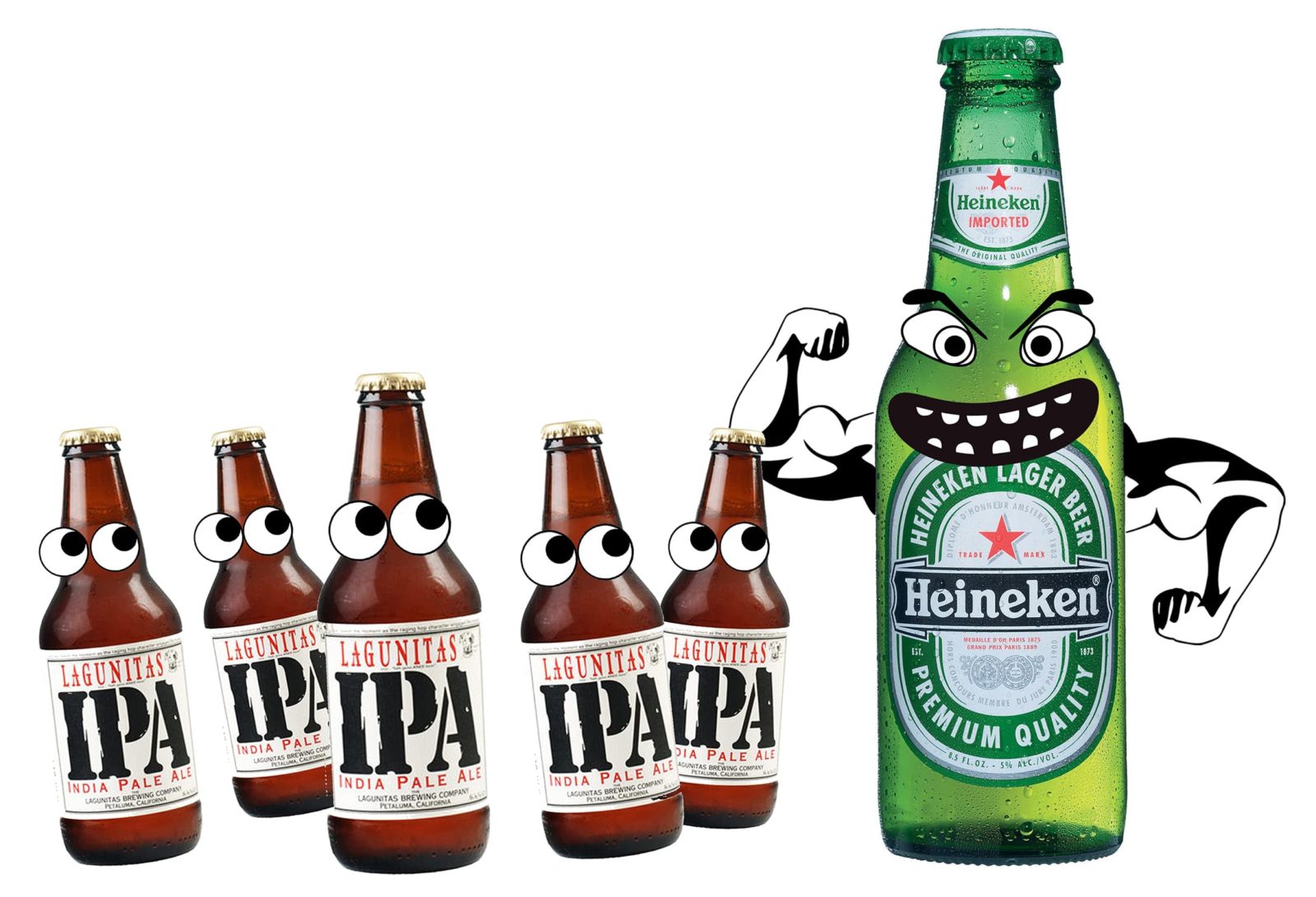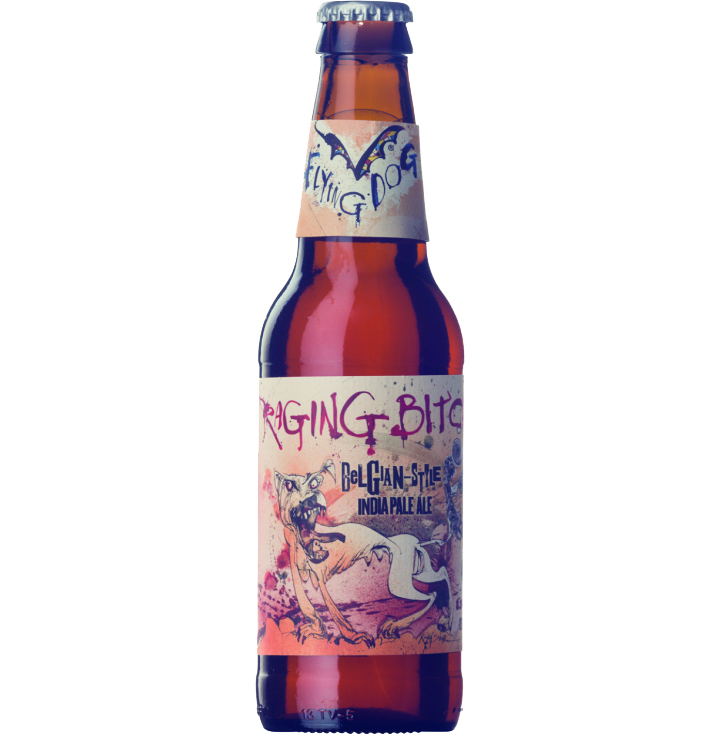It’s been a weird month in beer, folks. Last week, Heineken Brewing Company purchased a 50 per cent stake in Lagunitas Brewing, one of the largest and most popular craft breweries in the US. The partnership gives California-based brewery access to one of the widest beer distribution networks in the world. Not too shabby for a craft brewer.
That same week, MillerCoors bought a controlling share in San Diego-based Saint Archer – a small but rapidly growing brewery founded in 2015. These deals are part of the continuing and not-at-all surprising trend of Big Beer companies buying out popular craft brands: Earlier this year, InBev purchased Seattle’s Elysian Brewing, and in 2011, they bought Chicago’s Goose Island. There have been others. There’s every indication that these companies will continue to gobble up their competition, especially now that AB InBev and SABMiller – the two largest – are planning to merge.
Forums and comment sections on beer-y websites have bemoaned the Lagunitas deal in particular, for reasons both tangible (the potential for shitty beer produced by a beloved brand), and intangible (like, maybe, the progressive death march of the craft beer movement). These reactions are ubiquitous. I mentioned the Lagunitas deal to the shopkeep at O’Hare’s Liquor Store in Richmond, and she had an absolute meltdown. Like, her face sagged noticeably, she pressed her palms in to her temples and she said this: “NOOOOOOOOOOOOOOOOOO!” There were other customers in the store.
She shouldn’t have been so surprised. American craft beer is huge business, and is still growing. The biggest breweries are very big. Lagunitas is on pace to produce 800,000 barrels of beer (or about 954,000 hectolitres) this year, and that’s not even close to the largest US craft brewery (that’s Samuel Adams). Compare that to BC’s largest craft brewery, Phillips Brewing, which is rumoured to produce around 60,000 hectolitres (hard numbers are proprietary and kept secret).
Macro beer sales, meanwhile, are dropping. AB InBev’s sales volume for 2014 dropped 1.3 per cent, according to Bloomberg. So it makes all levels of sense for these conglomerates to find other products to glom onto.
Yet, the Canadian beer industry has issued nary a peep. No bloggers or industry insiders are expressing concern. There are a few reasons for this – the American media is way larger, the echo chamber far more relentless. But, I think mainly, Canadian beer just isn’t big enough for anybody up here to worry about their beloved breweries falling prey to Big Beer. Yet.
BC craft beer (as in, breweries producing up to 160,000 hectolitres) owns a sizeable chunk of the market here at 22 per cent (and growing), but that chunk is divided between 90 or so different companies. Individually, your favourite local brewery owns a sliver of the market, so the O’Hare’s employee doesn’t need to worry about losing Strange Fellows quite yet.
However, breweries like Phillips, Driftwood, Russell, Parallel 49, Turning Point (which produces Stanley Park) and Central City all produce about as much or more beer per year as Elysian when Elysian was bought out.
The problem is Canadian craft beer, by and large, is far too localized. In the US, craft beer is national game – you can find Sierra Nevada, Stone, Elysian, Brooklyn, etc., in a majority of states. They have some market penetration in Canada as well – of the $99.7 million in US craft beer exported internationally in 2014, over a third of it was shipped north of the border.
But if you go south, it’s tough to find even Molson at the beer store, never mind P49 or Phillips. Forget Four Winds, even if they are Canada’s Brewery of the Year. It’s a similar story province to province – with a few exceptions, very little BC craft beer can be found Canada-wide. So, with a comparatively small amount of beer produced, relatively lower valuations and limited market penetration in other provinces, it seems unlikely that the macros will be come knocking.
Molson did purchase Granville Island Brewing (for an undisclosed amount) in 2009, when that brewery was producing about 75,000 hectolitres. But has it exploded across Canada as a result of that purchase, the way Goose Island has in the US? Not really.
The industry is transitioning so quickly, that anything could happen. Molson could be speaking to Central City this very minute. Turning Point in particular seems ripe for the plucking, just for logistical purposes: right now, TP’s Annacis Island brewery is doubling as GIB’s production facility. P49, Phillips and Driftwood all have stellar brand equity, and the sales to back it up.
The Saint Archer purchase came seemingly put of nowhere – with only 15,000 barrels produced last year, and it wasn’t exactly a darling in the industry. But it’s a growing brand that MillerCoors can grow and leverage to push their competitors out of business. The same could happen here.
Strap in, folks. It’s gonna get weirder.






